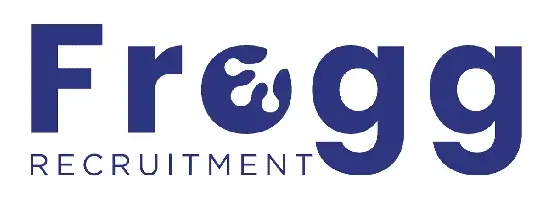Tag: interviews
-

Strategic thinking during interview questions
Continue ReadingWhy is strategic thinking so important?
The ability to think strategically has become essential for decision-makers and executives navigating the fast-paced commercial world of today.
Additionally, it is crucial to include strategic thinking during interview questions in the hiring process to find applicants with those kinds of abilities. This is especially important for recruiters/hiring managers in charge of recruitment. Interview questions centered on strategic thinking facilitate the identification of people capable of scenario analysis, as well as opportunity identification.
Furthermore, these questions help assess successful strategy development to propel corporate success. Notably, strategic thinking forms a big part of even the 10 most common interview questions. Therefore, interview questions for strategic thinking are designed to assess several critical facets of a candidate’s ability.
Therefore, they assess the following:
Analytical skills:
These questions assess a candidate’s ability to analyse complex problems and break them down into manageable components. They reveal the candidate’s capacity to gather relevant information, consider multiple perspectives, and draw logical conclusions.
Flexibility and Adaptability:
Questions focusing on adapting strategies to changing circumstances help gauge a candidate’s ability to respond effectively when faced with unexpected challenges. Furthermore, they reveal whether the candidate possesses the flexibility to adjust their plans and pivot their approach as needed.
Resource Allocation and Prioritization:
These questions aim to assess a candidate’s ability to make informed decisions regarding resource allocation. Candidates are evaluated on their capacity to identify priorities, assess the impact of different tasks or projects, and allocate resources strategically to maximize outcomes.
Opportunity Recognition and Threat Mitigation:
Questions related to identifying market opportunities or addressing competitive threats, on the other hand, evaluate a candidate’s ability to think strategically in response to external factors. Specifically, strategic thinking during interview questions, therefore, assesses their capacity to spot trends, anticipate risks, and capitalize on opportunities. This, in turn, highlights their proactive approach to strategic planning.
Alignment of objectives and execution:
These questions assess a candidate’s ability to bridge the gap between strategic objectives and the day-to-day activities of their team. Employers look for candidates who can effectively communicate goals, motivate their team, and ensure that their strategic plans are translated into actionable steps.
Influencer and stakeholder management:
Questions about persuading stakeholders to evaluate a candidate’s capacity for relationship-building, persuasion, and winning over others to innovative ideas or strategic orientations.
However, this shines through when you actively ask questions during the interview as well. Additionally, this shows that they can successfully negotiate intricate organizational dynamics and win over important players.
Strategic thinking during interview questions explained:
Firstly, this question assesses a candidate’s ability to understand complex situations. In addition, it tests their capability to break them down into manageable parts. Furthermore, it evaluates their skill in developing a strategic plan. When evaluating candidates, look for those who demonstrate a structured approach to problem-solving. Additionally, look for candidates who gather relevant information and consider various alternatives. Finally, seek candidates who can present a well-thought-out strategy.
Strategic thinking involves being flexible and responsive when faced with unpredictable changes. In addition, this question aims to evaluate a candidate’s ability to adjust their strategy in response to evolving circumstances. Moreover, look for candidates who demonstrate agility, the ability to think on their feet, and a willingness to pivot their approach when necessary.
This question assesses a candidate’s ability to make sound decisions regarding resource allocation. Look for candidates who can assess the relative importance and impact of different tasks or projects, prioritize effectively, and allocate resources in a way that maximizes value and minimizes waste.
Strategic thinking involves identifying and capitalizing on opportunities while mitigating potential threats. This question helps evaluate a candidate’s ability to identify market trends, competitor activities, or other factors that could impact the organization. Look for candidates who demonstrate a proactive approach to seizing opportunities or addressing threats through strategic planning and execution.
Creating practical plans from high-level objectives and coordinating them with day-to-day activities are necessary for effective strategic thinking. In addition, emotional intelligence plays a key role here. Furthermore, this question assesses a candidate’s ability to bridge the gap between strategic goals and tactical execution. Moreover, look for candidates who emphasize clear communication, goal setting, and the ability to motivate and align their team toward strategic objectives.
Additionally, navigating complicated connections and persuading stakeholders to support and embrace new initiatives require strategic thinking. Moreover, this question assesses a candidate’s capacity to forge agreements, persuade others, and win over important stakeholders. In particular, look for candidates who can demonstrate effective negotiation skills and a track record of successfully driving change through strategic influence.
Furthermore, it is important to seek candidates who understand the importance of balancing immediate results with long-term strategic goals. Additionally, candidates should be able to analyze the potential consequences of their decisions and prioritize actions that align with the organization’s overarching strategy.
Additionally, those with a strategic mindset are adept at seeing areas for development and streamlining procedures. Furthermore, this question evaluates a candidate’s ability to spot inefficiencies and develop strategic solutions to enhance productivity or streamline operations. In addition, look for candidates who display their analytical skills, innovative thinking, and the ability to drive positive change.
This question assesses a candidate’s ability to think critically about market dynamics and develop strategies to outperform competitors. Moreover, look for candidates who demonstrate market awareness. In addition, they should have the ability to identify unique value. propositions, and the capability to create differentiation strategies that can help the organization gain a competitive edge.
Strategic thinking is the ability to make well-informed decisions under uncertain or incomplete conditions. Additionally, this question evaluates a candidate’s ability to analyse risks, weigh potential outcomes, and make calculated decisions in ambiguous situations. Furthermore, look for candidates who display their ability to gather relevant data, consult with relevant stakeholders, and demonstrate sound judgment.
The significance of matching departmental goals and team goals with company objectives is recognized by strategic thinkers. Moreover, to improve performance and adjust to changes in the market, this question evaluates a candidate’s capacity to evaluate the existing situation. In addition, it assesses their ability to spot gaps and strategically reorganize teams or departments.
It is important to look for candidates who can articulate their change management skills. Furthermore, their communication abilities and the ability to drive organizational alignment should also be considered.
Lastly, strategic thinkers are excellent at identifying opportunities even in adverse situations. Therefore, this question evaluates a candidate’s ability to think creatively and develop strategies to navigate crises successfully. Furthermore, look for candidates who demonstrate resilience, problem-solving skills, and the capacity to turn adversity into an advantage through strategic decision-making.
Conclusion
In conclusion, from the view of an employer, it is important to incorporate strategic thinking during interview questions. As a potential employee, it is important to have the ability to strategically think whether it be in the interview and then in the workplace. It is an ability you need to develop for your abilities to be tested.
For more insightful content like this, head over to our blog page and follow us on Facebook, Instagram, Twitter, and LinkedIn.
-

10 Red Flags on a CV That...
Continue Reading10 Red Flags on a CV That Employers look for
A recruiter will review a CV before determining if the candidate is a good fit or not. As a result, they have mastered the skill and are fully aware of their surroundings. On the one hand, they seek out precise keywords and a format that is simple to understand. On the other hand, they are searching for errors and other significant warning signs. These errors are detrimental to your career but making them on your resume can be particularly harmful. Joining a company that embraces Employer Branding is helpful. Let’s take a look at 10 red flags that employers look for.
How to address these red flags head-on to increase your chances of getting an interview is provided below.
An unprofessional email address
Your email address is at the top of the page and glaringly obvious to the recruiter/employer. Warning sign number one is – an unprofessional email address. The first red flag is an unprofessional email address. You ought to have a straightforward and expert email address. If for some reason you don’t, setting it up requires a few minutes. Use your last name and first initial or first and last name when creating your professional email address.
Poor formatting
Poorly structured resumes are more difficult to read and make it difficult for recruiters to discover important information. It’s not just an issue of appearances. Even if you’re a good fit, poor formatting may result in problems with applicant tracking systems (ATS). Poor formatting on your resume, including glaring errors, shows that you didn’t put much thought or work into it. This may make a potential employer question if you’ll put in just as little effort if you land the job. This also depends in part on you and in certain cases on the preferences of the recruiter. Use a free CV template to get started.
Unexplained employment gaps
Unemployment gaps are a standalone warning flag, but gaps in employment without justifications make it more obvious. Your employment history may contain gaps for a variety of reasons. Maybe you were dealing with health issues, taking care of a family member, or you just decided to take a career vacation. Whatever the cause, be as truthful as you can about your whereabouts and your activities. Don’t go too personal, please. The minute particulars are not required. Your employment history should be presented in your cover letter with a precise and succinct explanation. Perhaps during your time off, you gained some crucial new knowledge or encountered situations that were pertinent. You might even go into more detail about how this has made you better at your job.
Lack of career progression
Employers seek candidates who desire to prosper and advance with the business. Your resume should demonstrate how your career has advanced. When you have been inactive for too long, you may wonder why. A candidate’s irregular career path or absence thereof may have been due to a variety of legitimate factors. Candidates who frequently change jobs or resign from them give the impression that they lack commitment and loyalty.
Wording mistakes
The errors in your resume reveal a lack of attention to detail. Although it might seem obvious, you’d be amazed at how many people get this wrong. These grammatical errors are obvious from a distance. Consider it from the perspective of the employer. Your best work should be highlighted on your CV. If it’s riddled with errors, you’re conveying the wrong idea. Hint: Have your resume edited by at least two people. Then, before submitting your application, make sure to proofread it multiple times.
Job hopping
Job hopping, which is described as regularly changing employers, typically has a bad connotation. These days, employers look for more than simply experience. They prize flexibility, a thirst for knowledge, and a variety of talents. Each hop could stand for your desire for development and dedication to lifelong study. You are moving toward bettering yourself, not away from, anything.
A red flag on your resume will almost always be raised by brief stays and unexpected departures. Your CV shouldn’t shout, “I’m probably going to leave as soon as my training is finished,” because employers prefer workers who are in it for the long haul. As a jobseeker, you should always research companies that believe in company values.
Too much (or too little) information
When it comes to resumes, more isn’t necessarily better. The first impression you want to give is not one of being out of touch with professional standards, which is what happens when you provide the incorrect information.
Too many personal details make you appear unprofessional and increase your vulnerability to discrimination. On the other side, leaving out vital facts like your contact information makes you appear unprofessional and negligent and makes it harder for employers to contact you. Including your complete street address on your CV won’t likely prompt recruiters to throw it away. However, they will be searching for other signs of professionalism (or a lack thereof). If you’re still not sure where the fine line between too little or too much information is, HOW TO WRITE A CV.
Underscoring Results While Overemphasizing Responsibilities
It might be challenging to succinctly express your professional abilities in a way that sets you apart from the competition. Candidates frequently wind up overemphasizing their duties, which comes out as conceited. This might turn off employers.
Even though you are a renowned leader or a forward-thinking thinker, those statements ought to be made about you rather than by you. Do not assert any obligations or make any representations about them that cannot be supported by facts. Include a former boss or supervisor who can attest to your accomplishments as a reference if you can.
Lack of Measurable Successes
If you don’t quantify your accomplishments in previous positions, potential employers might suspect that you’re lying on your CV. It’s critical to show the results efforts have yielded in addition to making sure you get credited for your contributions.
Concentrate on accomplishments that meet the needs of the recruiter and highlight how you delivered the intended results for these efforts. Adding percentages or numbers within predefined times is an excellent way to accomplish this. Positions in sales and marketing are particularly pertinent to this.
Skills that Are No Longer Valuable
The use of general skills like “Microsoft Word” or “Excel” in your CV shows that you might not have any more in-demand abilities. Since you lack the requisite abilities or knowledge, it suggests that you are not a good fit for the position.
To help employers rapidly decide whether you have the necessary credentials, try providing 5 to 10 specific and pertinent talents. Make sure your CV is targeted to the position you’re seeking and highlights the most significant elements of your background, skills, and expertise.
In conclusion, the next time you think of applying for a job, revise these CV red flags, and proofread your application before applying. For more content like this, follow our social pages on Facebook, LinkedIn, and Instagram.
-

Ace the interview and get a job...
Continue ReadingYour CV/resume is impressive, and the employer is blown away. Now you need to ace the interview and get a job offer. This can be intimidating as you are willingly exposing yourself to possible criticism. Interviewers are more nervous than you are. They are pressurized by frustrated hiring managers/recruiters to quickly hire the best candidate after the resignation of a former employee. This is to not overburden the remaining team. They’ll be blamed if they hire too soon, and the person turns out to be a dud. This is why you need to stand from the rest.
The longer the hiring/recruitment process takes, the more likely the rest of the staff will grow resentful. All the work is dumped upon them without any additional compensation. If a new person isn’t onboarded, they will have to work more hours and will start updating their resumés and contacting recruiters. Looking for more information about our expertise sectors Click here.
Here are our most important tips to ace the interview and get the job offer:
First impressions
The first factor that will get you that job offer is your first impression. First impressions are not always correct. They do count when you want to ace the interview and get the job offer. You want to ensure that you are on time and dressed professionally. When you walk into the interview, supply a warm greeting and smile. A genuine smile makes for a great first impression. You may be nervous, but the key is to look confident and make sure you keep good eye contact. You don’t want to come across as uninterested and disconnected but rather interested and connected.
Knowledge equals confidence
You want to enter the interview with knowledge about the company they did not expect you to have. Research the interviewer as well as the company and its mission, achievements, products, services, and culture. This will impress the interviewer beyond what is on your CV/resume. Anticipate potential challenges and objections. By preparing well, you will feel more confident and ready to impress the interviewer.
Practice your responses.
Master the warmup questions but be prepared for the tough ones. You will likely have to tell the interviewer about yourself, why you should be hired and what your career goals are. The point here is not to have your cv memorized but rather use it as a reference. You want to add something interesting to the story your CV tells. The toughest questions would be “what are your greatest weaknesses” or “where do you see yourself in 5 years?” This is where confidence comes into play and turn those I don’t knows into strengths that relate to the role you applied for. The more you prepare, the more confident you will become.
Prepare examples and metrics.
This goes back to the first point. Essentially what you are trying to do here is demonstrate the value you will be adding to the company. Talk about the impact you made in your earlier role and quantify your experience as much as you can. This is however useful when it is relevant to the position you’re being interviewed for.
Consider the things that others have commended you for in the past, the positive feedback you’ve received, the times you’ve earned money for your business or saved money, or the times you streamlined a process. Your chances of landing the job will increase the more accomplishments you can measure and instances you can use to support your arguments.
Finally, although while most employers won’t expressly inquire about your ability to collaborate with others or your rate of learning, they will be listening for indications of these skills during your interview. You might wish to mention a moment when you collaborated on a project or a situation at work when you acquired new abilities while sharing your examples. Although you don’t need to know everything, displaying an eagerness to learn is an attractive quality.
Ask the right questions.
Always have questions ready for the interview but be careful not to ask any that can be easily answered by doing basic Internet research. Avoid enquiring about the salary and benefits as you are in unchartered waters. More information about the recruitment services we offer click here
Keep in mind that an interview is a two-way conversation, so you should also ask questions to decide whether this organization is a good fit for you. Finally, if it wasn’t already covered, you might inquire about deadlines and subsequent recruiting stages.
Your questions should be open-ended, meaning that they cannot be answered by a simple yes or no. Open-ended questions invite the interviewer to share more information, opinions, or experiences, and create a more engaging and meaningful conversation. They also allow you to learn more about the company, the industry, and the role, and to highlight your own knowledge or perspective. For example, instead of asking “Do you like working here?”, you may ask “What do you enjoy most about working here?” or “How would you describe the culture here?” Open-ended questions also give you an opportunity to ask for feedback, advice, or recommendations. For example, you may ask “What are some of the common mistakes that candidates make in this role?” or “What are some of the resources that you would suggest for someone who wants to learn more about this industry?”
Send a thank you note.
However, an honest and prompt thank you note could be exactly the thing that elevates your candidacy above another similarly qualified candidate who does not bother with a thank you. Ultimately, whether you land the job depends on how well you do in the job interview. Send an email thank you note that is brief and formal whenever it is possible. Additionally, this is a fantastic opportunity to highlight your fit or underscore any important aspects you neglected to bring up during the interview.
Stay positive.
As obvious as it seems to stay positive during a job interview, it can be a tough thing to do. Especially if you describe challenging situations from the past such as being fired previously. Show the employer that you can keep a positive attitude about challenging situations and environments, and they will see the resilient and flexible individual they are looking for.
Conclusion
To ace the interview is a vital step towards get that job offer right there and then. You want to make sure that you take these factors into consideration as they have proved to be helpful. If you want to find more about what we do as one of the top employment agencies, view Our Expertise.
Please feel free to read our other blogs and follow us on Facebook, LinkedIn and Instagram for more content.
-

What are the 10 most common interview...
Continue ReadingDo you intend to ace your upcoming job interview? But how and what? What are the 10 most common interview questions? An interview can be difficult to navigate, but with the correct preparation and information, you can confidently answer any question. We offer answers to all your questions, from “Tell me about yourself” to “What are your strengths and weaknesses?”
We are aware of how important it is to present your qualifications in a way that will astonish the interviewer. This will help you differentiate yourself from the competition and raise your chances of getting your dream job, whether you are a new graduate or an experienced professional.
Do not pass up this chance to obtain an advantage in your upcoming interview. Let us begin your journey to interview success. Examining the common interview questions and how a suitable applicant would respond to them is an essential part of preparation for interviews. Are you looking for more information regarding our expertise read up about our Finance & Accounting recruitment.
Listed below are the 10 most common interview questions with answers: Free Cv template
Tell me about yourself.
It can be intimidating to answer this question because one is not always sure how to do so. It does, however, give you as a candidate the chance to introduce yourself and explain why you are a better choice than the competition. Beyond what is on your résumé, the interviewer is interested in learning why you would be a good fit for the position. To start the conversation, you should supply enough personal and professional information in your response to the inquiry. Keep a balance between sharing personal and professional information. Below is an example.
Answer: “Because I run, I have discovered that the discipline and concentration needed to finish a race have aided my development of exceptional time-management abilities in my professional life. In my earlier position, for instance, I was able to successfully juggle several projects and deadlines, assuring consistent on-time delivery. Additionally, I have discovered that my love of rock climbing has contributed to the growth of my cooperation and communication abilities, both of which have been beneficial in my professional life.”
What interest you about this role?
A popular strategy you as a candidate can use is researching information about the company and the role you applied for. Focus on a specific area within the company that legitimately interests you such as the company’s reputation or history. This shows that you have a high interest in the role you are being interviewed for.
Answer: “My prior success and experience will enable me to meet my modest goals in a number of areas, including XXX. I am also eager to find out more information about XXX. The company’s purpose is in line with my personal and professional ideals, and I think I’d fit in quite well with the company’s culture. I loved what I read in the recent article by the CEO about the initiatives the company is undertaking to ensure ongoing enhancement to culture and employee engagement.”
What are your biggest strengths?
Mention your greatest strengths that apply to the role to ensure that you are set apart from other candidates. Be honest and genuine about it as you do not want to produce an answer that the employer wants to hear.
Answer: “Team management is my strongest suit. I hugely appreciate working in teams and using everyone’s special talents and viewpoints on a project, while still having fun and managing a work-life balance. Winning a team appreciation award earlier this year was one of my happiest experiences, and I’ll be honest: I genuinely like doing my part to encourage everyone to put up their best effort.”
What are your greatest weaknesses?
This is one of the most common interview questions. Mention weaknesses in a positive light. Why make your weaknesses seem like flaws, answer this question with confidence. This is another instance to show the interviewer why you as a candidate is the best fit for the position.
Answer: “I work extremely hard, but occasionally this can lead to perfectionism. Because I want things to seem perfect, I have noticed that I often check spreadsheets more than is needed or take too long to prepare emails. To make sure I am managing my schedule while still producing high-quality work, I have consistently focused on estimating how much time to spend on each assignment. I have improved my time management.”
Where do you see yourself in five years?
You may not know where exactly you want to be in five years. Avoid saying “I don’t know.” Show that this opportunity aligns with your professional plans and/or goals, skills and how this aligns with those intentions.
Answer: “In five years, I see myself continuing to work hard and progressing in my current role. I hope to have acquired the necessary skills and experience to successfully lead a team where I want to be seen as a valuable member. I would also like to have developed a good working relationship with all team members. Regarding my career, I would like to have progressed into a more senior role within the company. I would also like to have increased my responsibilities and be given more opportunities to use my creativity.”
What is your ideal work environment?
Do research beforehand to see what answer is most beneficial to you as a candidate. You may never has worked in the environment of the role you applied therefore you may not know what to expect.
Answer: “I enjoy being part of a team therefore I believe this would be an ideal work environment for me. Being part of a team when team members support each other or share ideas is where I thrive. When I need to focus on a task, I do work well alone. An environment where I can grow my skills and be surrounded by like-minded people is ideal to me. “
What is a major challenge you have faced?
This question represents you with an opportunity to talk about your work history. The answer supplied here can make you appear impressive. Think of an applicable challenge and how that challenge was overcome before the interview to highlight skills.
Answer: “In an earlier role, a manager recognized my work ethics and increased my work responsibilities. The increased responsibilities proved to be too much, and I began falling behind and missing deadlines. To increase my productivity overall, we hired another person. I no longer missed deadlines.”
What are your salary expectations?
This question seems complicated to answer as you do not want to make it seem like the sole reason you want this role is for the salary. Do some research about the market and how much the industry pays. Decide a reasonable salary based on your experience and skills.
Answer: “I am flexible and open to discussing salary for this position. My skills in this industry add value to my candidacy. From my research, similar positions pay XXX to XXX. Considering my experience, skills, and value that I can bring to this company; I anticipate the salary be on the higher end.
Can you explain the gap in your CV/Resume?
Employment gaps refer to periods in a professional career when you did not have employment. Gaps in your CV/resume may occur due to a number of reasons. Whether it was to obtain another qualification, retrenchment or even relocation. Regardless of the reason, an interviewer may ask you about it. When this happens, it is important to be honest. Don’t have any regrets read this article to gain more experience in how we operate as a Finance & Accounting recruitment agency.
Answer: “The gap in my CV/resume is indicative of me having travelled, pursuing another degree and well as volunteering. I took this time to focus on self – improvement and I am now to return to the work field. “
What are your career goals?
Employers want to know what your intentions are. Be transparent and honest but do not try to oversell yourself as the perfect candidate. State whether you intend to stay with company or whether you have plans to progress in a different environment.
Answer: “In my current career, I would like to improve my skills and as I progress and take on new roles, I hope to acquire additional skills that will be beneficial to not only the company but myself as well.”
In conclusion, revise these 10 most common interview questions and be prepared for your upcoming interview. If you want to find out more about what view do as one of the top personnel agencies, view Our Expertise. For more blogs like this, read this article Impressive questions to ask during an interview . Follow us on Facebook , LinkedIn and Instagram to be notified whenever we post a new blog.
